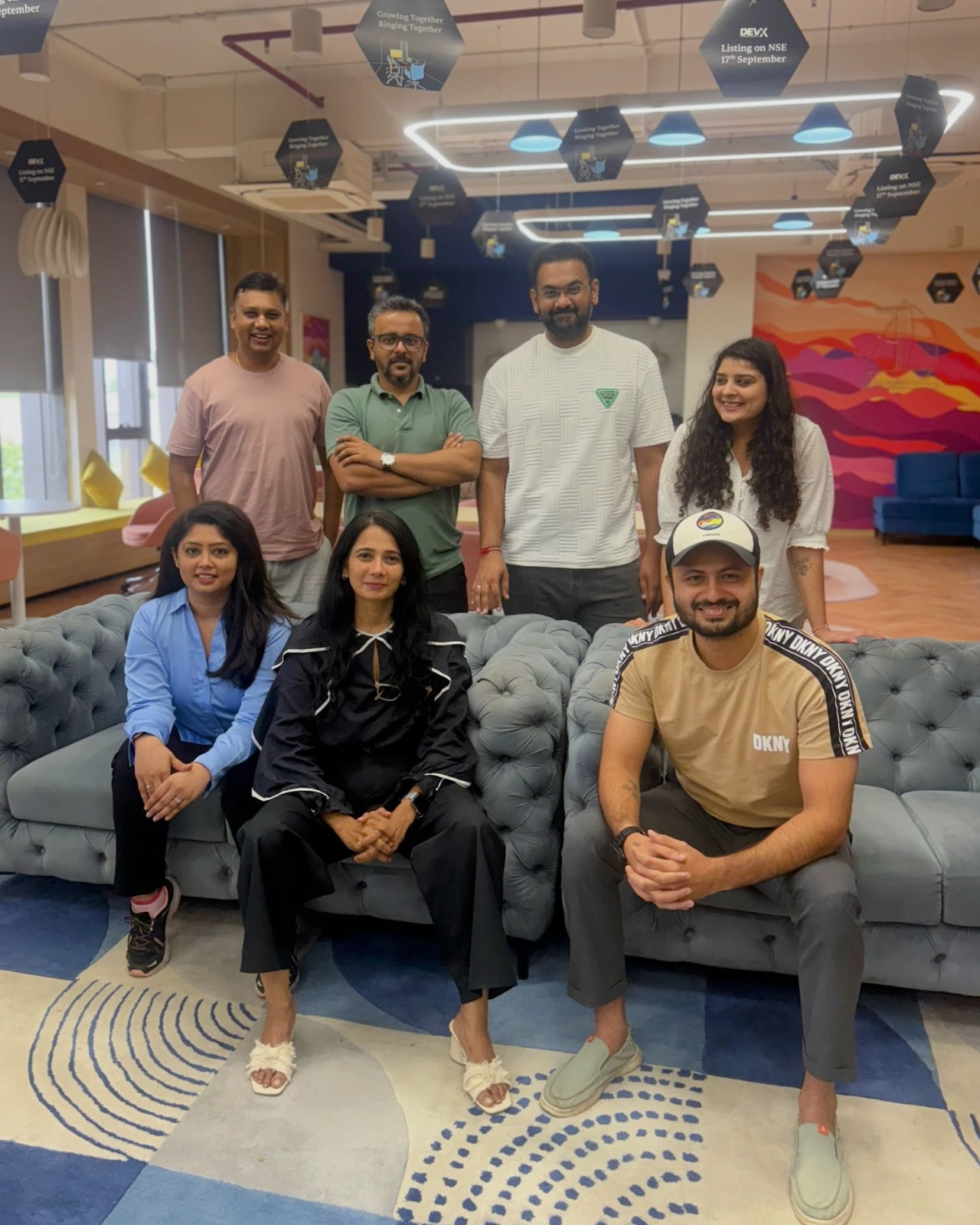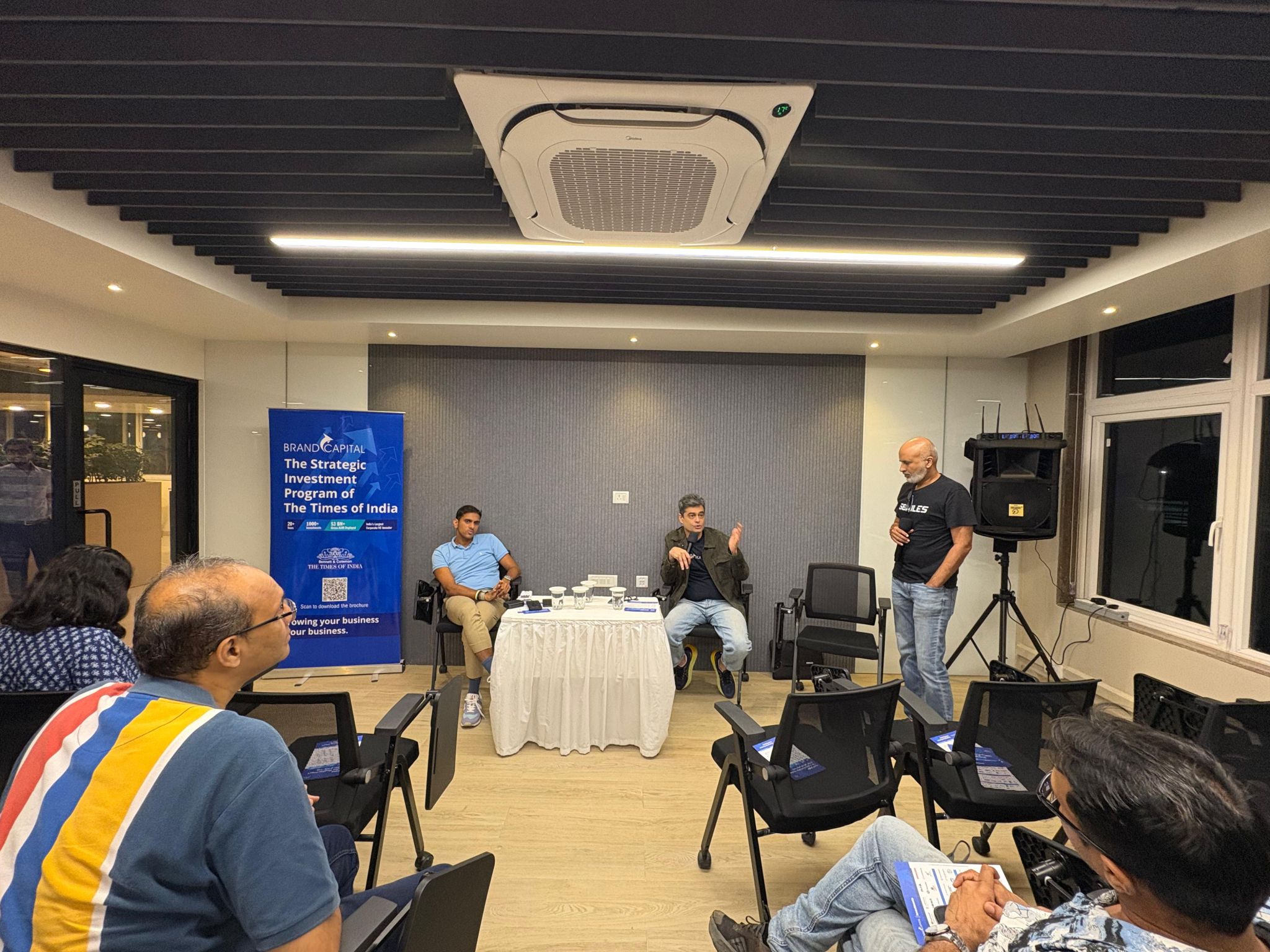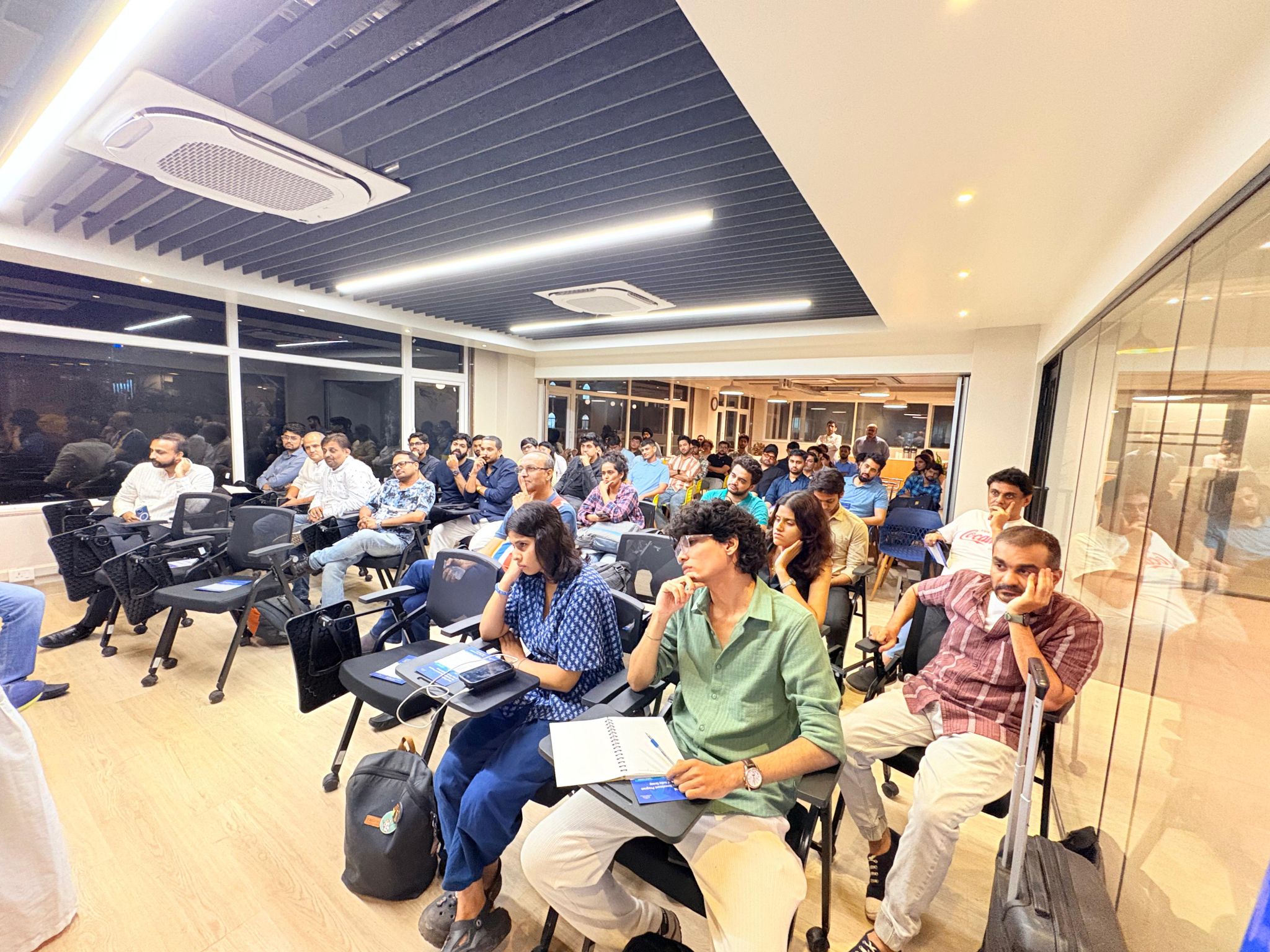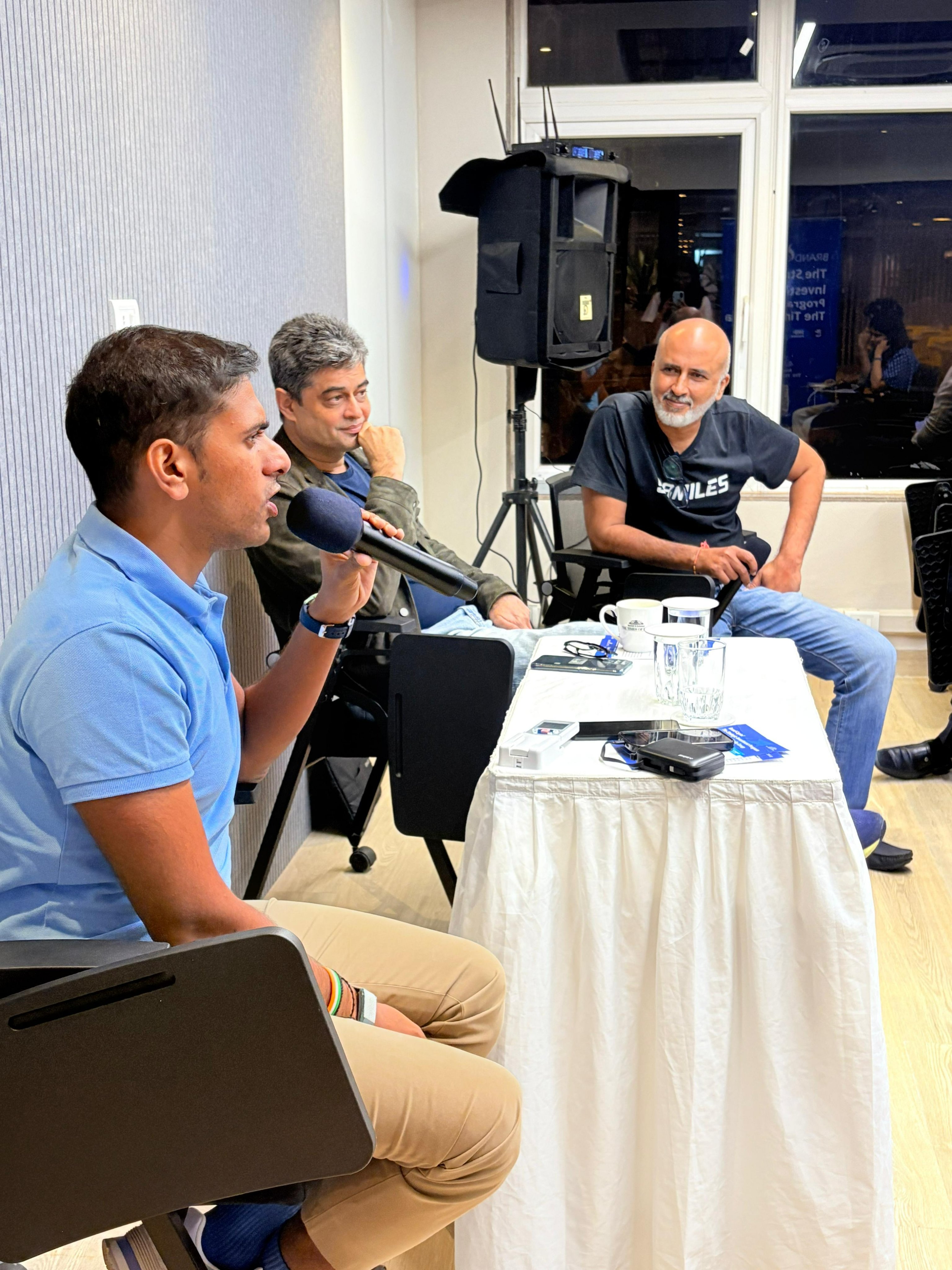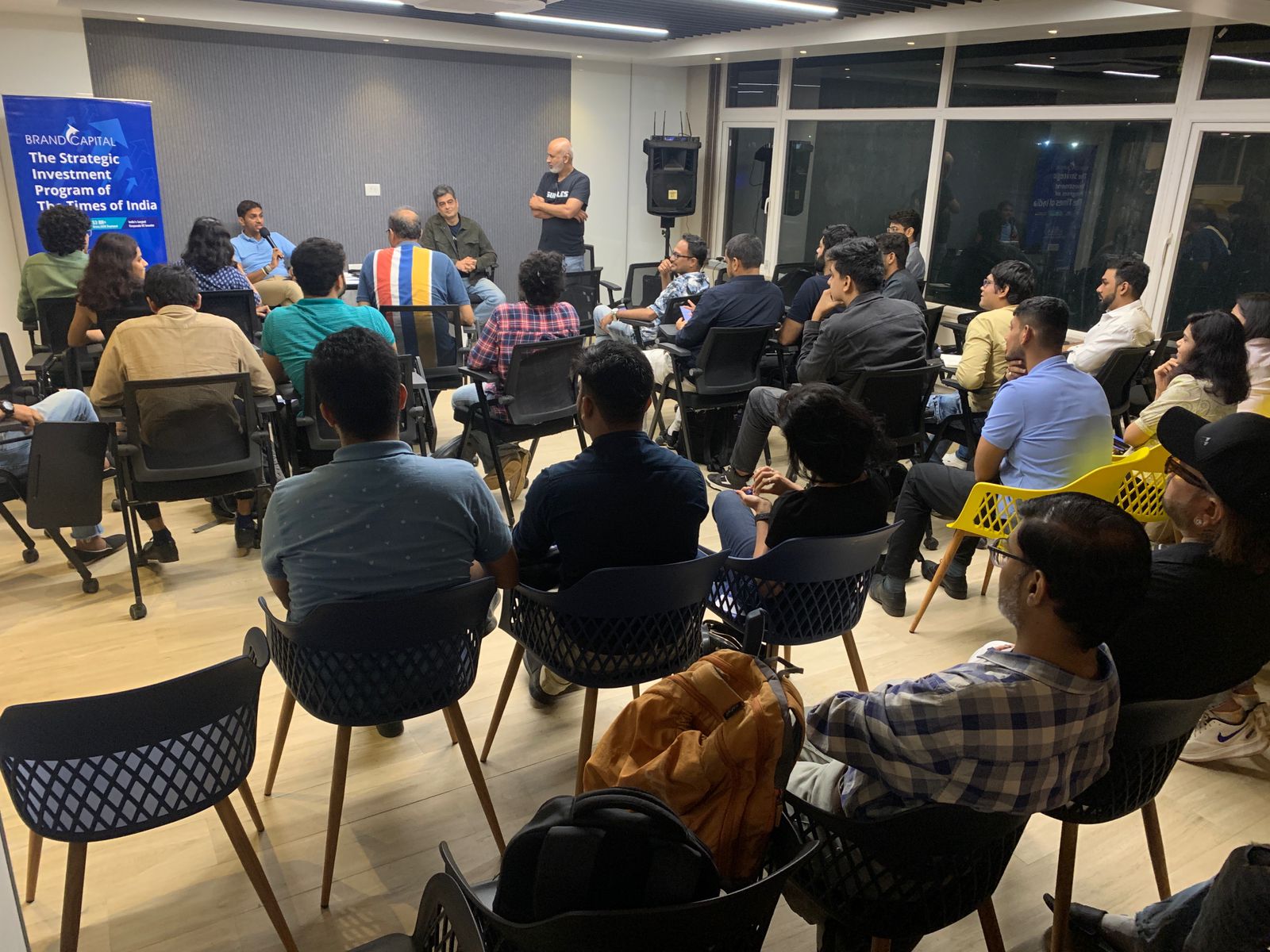Blessing in disguise
Books for Entrepreneurs
Documentary
eChai Wall of Love
How I Met My Co-Founder
In Focus Today
Insight Reports
Movies for Entrepreneurs
Notes from Podcasts
Slice of Startup Life
The First Hire
The First Welcome in Silicon Valley
The Reading Room
Unforgettable Lessons
You don’t grow despite challenges, you grow because of them

At eChai Ventures, our Unforgettable Lessons series highlights the defining truths founders learn not from success, but from the obstacles that shaped them.
For CA Swati Panchal, that truth was forged in the moments when ambition looked unreasonable, when starting over felt endless, and when resilience became her greatest strength.
Here’s how she tells it:
“I come from a small town where the idea of pursuing Chartered Accountancy was considered too ambitious, especially without a business background. But I took that leap. From Dahod to Ahmedabad to Mumbai, I followed the path less taken and embraced every risk that came with it.
At 20, I became a Chartered Accountant, and soon after, I built my own firm from scratch. Every setback, from personal loss to starting afresh after relocations, didn’t stop me. They shaped me. They made me stronger.
Over the years, I’ve worn many hats: Chartered Accountant, Author, Anchor, Startup Mentor, Podcast Host, and Advisor. My work has spanned forensic accounting, NBFC advisory, fintech, corporate finance, and startup mentorship. I’ve hosted TV shows, contributed to national platforms, delivered keynotes at leading forums, and written for business and finance media.
The recognitions, from Times of India’s 40 Under 40 Leader of Tomorrow to being honoured as Humanity Star by the Gujarat Police, are milestones, but not the measure. For me, growth has always come from the challenges that forced me to adapt, rebuild, and push further.
eChai has been a powerful part of that ecosystem, a space where knowledge flows freely, collaborations thrive, and founders build together. For me, entrepreneurship isn’t just about starting up; it’s about vision, resilience, and creating lasting impact.
From small-town dreams to mentoring startups at i-Hub, GTU, LJ University, and Parul University incubation centres, my journey is proof that every challenge carries the seed of growth, if you choose to see it that way.
Because you don’t grow despite challenges, you grow because of them.”
Big Head for the Win
You know there’s a growing buzz online about a Silicon Valley reboot. It makes sense. We’re in another wild tech moment, AI everywhere, founders chasing impossible ideas, and every week feeling like an episode that never got written. Someone says, “They should bring it back. Imagine Richard Hendricks running an AI startup,” and the internet agrees. The show didn’t just mock startups; it understood them.
When HBO aired Silicon Valley in 2014, creators Mike Judge, John Altschuler and Dave Krinsky turned startup chaos into comedy that felt real. The nervous builder, the loud visionary, the calm operator, the lucky drifter, we all knew someone like them. Even after the show ended in 2019, its language stayed. Founders still talk about “Hendricks moments,” quote Belson during pitches, or laugh at Big Head’s luck.
The jokes became a mirror.
The jokes became a mirror.
At eChai Ventures, those names come up all the time. Over dinners, mixers and late-night chats, someone always asks, “Which character are you?” The laughter that follows is usually honest. A bit of Hendricks, a hint of Belson, a steady Monica, a wish for Big Head’s timing.
So one Saturday morning at DevX Lounge in Ahmedabad, we decided to take it off the screen. We hosted eChai’s Silicon Valley Quiz, four founders, one whiteboard, and coffee that went cold before round one ended.
Each of them brought a version of the show with them.
Ishani Upadhyay Dave (Shaadivibe) learned about the quiz just a day earlier. She watched one episode, asked ChatGPT for help, and came prepared.
Ayyan Karmakar (TAFCO) had watched the show recently. Fast thinker, faster talker, sometimes brilliant, sometimes bold guesses.
Umang Rajyaguru (C3) moved slow and steady, careful, focused, unshaken.
And Rishit Shah (Kinetic), the superfan. He had watched every episode, quoted lines before we began, sure he was going to win.
Round one told a different story.
Ayyan 150. Umang 145. Ishani 65. Rishit –15.
At one point I let Rishit pick the next question. He chose it, answered confidently, and still got it wrong. Everyone laughed, the kind of laugh founders know when experience doesn’t save them from a miss.
Round two tightened things. Ayyan and Umang kept trading the lead. Ishani stayed calm. Rishit didn’t move up but refused to give up.
Then came the twist, a final question worth 800 points. Whoever got it right would win it all.
Then came the twist, a final question worth 800 points. Whoever got it right would win it all.
I typed a character name on my laptop, closed the lid, and asked for guesses.
Umang said Gavin Belson.
Ayyan said Richard Hendricks.
Ishani said Monica.
Rishit smiled and said, “Nelson Bighetti.”
The laptop turned. That was the name. Eight hundred points. Game over.
The room erupted. Rishit had done it. The irony was complete. The superfan who lost throughout the game, who became the living parody of bad luck, won it all by naming the one character whose entire story is about stumbling into improbable victory.
He didn’t just answer correctly. He became the story.
For a few seconds, no one spoke. Then the cheering started again. The man who had missed almost everything won with the one answer that made perfect sense. Big Head had found his reboot, right here in Ahmedabad.
The Silicon Valley still matters. The show didn’t invent these people; it gave them names. You still see Hendricks in every founder who overthinks, Belson in every polished pitch, Monica in every steady teammate, Big Head in the one who somehow always lands on his feet. Once you notice them, you start spotting them everywhere.
When the quiz ended, people stayed back, trading stories and favorite episodes, the compression benchmark, the three-comma club, Gilfoyle’s calm chaos. The scoreboard didn’t matter anymore. The room felt lighter, as if everyone had just lived through a new scene together.
And as we packed up, someone asked what we had all been thinking:
If Silicon Valley were really to be rebooted, what would it look like now?
Would Hendricks be trying to fix AI ethics? Would Belson be giving TED talks about balance? Would Monica finally run her own fund?
Would Big Head still be the one who somehow wins in the end?
Till that reboot happens, we’ll keep building, keep learning, and keep living these stories, one founder room at a time.
Reading Unboxing Bengaluru helped me see the city’s spirit of chance encounters, and through eChai I experienced that spirit firsthand

When I moved to Bengaluru two years ago, my sister gifted me a book, "Unboxing Bengaluru" written by Malini Goyal and Prashanth Prakash, which talks about the unique professional serendipity this city offers. It describes how people randomly connect, often in a coffee shop, to spark great conversations or even kickstart a startup. This is a testament to how, when you put yourself out there, the world becomes a smaller, more collaborative place.
Since launching my law firm, RitPath, it feels like the city is also "unboxing" for me. Like meeting Jatin Chaudhary (Founder of eChai Ventures), a remarkable man who understands and harnesses the power of community, much like we lawyers rely on our seniors to navigate our profession.
As part of Echai, I got to attend the incredible event hosted by IKP EDEN, which marked the grand wrap-up of #Women’s DeepTechWeek. I witnessed the innovative side of Bengaluru where groundbreaking and futuristic startups are aggressively emerging.
The BioXcelerate winners of this event were nothing short of brilliant, showcasing how India's startup ecosystem is no longer just about B2C; it’s about DeepTech, and women are leading the charge.
From a bunch of amazing startups, these stood out to me the most, given my professional experience in sustainability and personal experience with health:
1. Biosouk Life Sciences LLP provides an affordable, portable paper-based test that detects antibiotic effectiveness for one of the most common types of UTIs caused by E. coli bacteria.
2. ArkaShine Innovations builds portable hardware devices armed with AI and ML to provide accurate and customized recommendations for soil treatment and crop selection.
3. Nuki Lens provides accessible and affordable epigenetic testing in India. This testing provides insight into changing gene expression due to lifestyle and environment.
4. Algaevity provides a sustainable, toxin-free bio-device to kill mosquitoes in 1-2 hours while improving air quality through algae-based CO2 absorption.
5. Sorteco Innovation built an AI-driven, non-invasive diagnostic tool that detects early-stage Parkinson’s disease.
These startups, along with Earth&Organics , Padival BioSolutions, Vi-Scan Diagnostics, Crop Domain, and AMbRotos Discoveries Pvt. Ltd., are truly at the helm of this innovation, proving that the next wave of change will be led by AI, deep science and empowered women.
As these startups pave the way for a healthier, technology-driven and more sustainable future, legal and regulatory clarity has become critical in enabling responsible and ethical innovation for the benefit of all.
Ps: It was an honour to present the award to one of the winners of this Program - Dr. Shilika Lilaramani, Vi-Scan Diagnostics
Since launching my law firm, RitPath, it feels like the city is also "unboxing" for me. Like meeting Jatin Chaudhary (Founder of eChai Ventures), a remarkable man who understands and harnesses the power of community, much like we lawyers rely on our seniors to navigate our profession.
As part of Echai, I got to attend the incredible event hosted by IKP EDEN, which marked the grand wrap-up of #Women’s DeepTechWeek. I witnessed the innovative side of Bengaluru where groundbreaking and futuristic startups are aggressively emerging.
The BioXcelerate winners of this event were nothing short of brilliant, showcasing how India's startup ecosystem is no longer just about B2C; it’s about DeepTech, and women are leading the charge.
From a bunch of amazing startups, these stood out to me the most, given my professional experience in sustainability and personal experience with health:
1. Biosouk Life Sciences LLP provides an affordable, portable paper-based test that detects antibiotic effectiveness for one of the most common types of UTIs caused by E. coli bacteria.
2. ArkaShine Innovations builds portable hardware devices armed with AI and ML to provide accurate and customized recommendations for soil treatment and crop selection.
3. Nuki Lens provides accessible and affordable epigenetic testing in India. This testing provides insight into changing gene expression due to lifestyle and environment.
4. Algaevity provides a sustainable, toxin-free bio-device to kill mosquitoes in 1-2 hours while improving air quality through algae-based CO2 absorption.
5. Sorteco Innovation built an AI-driven, non-invasive diagnostic tool that detects early-stage Parkinson’s disease.
These startups, along with Earth&Organics , Padival BioSolutions, Vi-Scan Diagnostics, Crop Domain, and AMbRotos Discoveries Pvt. Ltd., are truly at the helm of this innovation, proving that the next wave of change will be led by AI, deep science and empowered women.
As these startups pave the way for a healthier, technology-driven and more sustainable future, legal and regulatory clarity has become critical in enabling responsible and ethical innovation for the benefit of all.
Ps: It was an honour to present the award to one of the winners of this Program - Dr. Shilika Lilaramani, Vi-Scan Diagnostics
Unlearning Is Often the Hardest Part of Growth

September 17th was about celebration. Jatin Chaudhary, co-founder of eChai, and I were in Mumbai with a few friends from the community for the DevX IPO listing. It felt like one of those moments that belonged to more than just a company. For many of us, it was a milestone for the larger ecosystem.
The very next evening the setting shifted to the Times of India building in Fort, where eChai and Brand Capital were hosting a session on how founders are building and scaling consumer brands. Jatin was supposed to moderate, but he had to return to Ahmedabad same day, and he asked me to step in. That is how I found myself on stage with leading d2c investor and founder, Arjun Vaidya and Abhishek Daga.
Arjun built Dr. Vaidya’s into one of India’s most recognizable Ayurvedic D2C brands and now co-leads V3 Ventures. When I asked how his perspective had changed, he said, “What I thought was right as a founder isn’t always right as an investor.” It was a simple line, but it stayed with me.
Abhishek spoke about building Nasher Miles into a ₹100 crore luggage brand while staying profitable. He talked about the risks of relying too much on Meta ads, the differences between online and offline pricing, and the advantage of being early on marketplaces. At one point he said, “An advantage is an advantage. Don’t debate it, use it.”
The audience added its own depth. Founders asked questions about logistics, supply chains, last-mile delivery, and how to balance burn with profit. These were not abstract discussions. They came from people who had already tested the easy answers and were now searching for new ones.
For me, the evening tied back to my own journey. Before 58Miles, I came from traditional corporate apparel. That world moved differently. Scale came from supply relationships, offline networks, and operational depth. When I stepped into the world of new-age D2C brands, I realised how much of that experience I had to unlearn. Not everything translates. Some parts of that background help, the discipline of operations, the patience for supply chains, but other instincts can hold you back. The challenge is knowing which lessons to carry forward and which ones to leave behind.
That night in Fort reminded me again that unlearning is often the hardest part of growth. It is not always visible and it is not celebrated, but it shapes the way founders move forward.
In Focus Today: Emergent Labs Lands $23M as Its Vibe-Coding Platform Crosses a Million Builders in 3 Months

Emergent Labs, co-founded by Mukund Jha (earlier of Dunzo) and Madhav Jha, has quickly become a platform for building AI-powered apps at speed. In just three months since launch, it reports more than a million builders, over 1.5 million apps created across 180 countries, and $15 million in recurring revenue. The idea is straightforward: help anyone move from an idea to production-ready software without long build cycles.
On September 24, Emergent announced a $23 million Series A led by Lightspeed, with participation from investors and operators linked to Google, Pinecone, Runway, and DeepMind. The update also shared examples of how people are using the platform, from a jewellery chain in Michigan automating repair quotes to small businesses digitizing operations and independent professionals starting new projects.
In this story, we’ve included Mukund Jha’s announcement along with a selection of reactions on X.
In this story, we’ve included Mukund Jha’s announcement along with a selection of reactions on X.

The eChai Effect - In Their Words
“eChai has been that turning point in my journey. It gave me a platform when I wasn’t looking for visibility but needed direction. Over the years, it became more than just a network. It became my tribe; a place where conversations sparked collaborations, and strangers became trusted sounding boards. What I value most is how effortlessly eChai brings people together - no airs, no filters, just genuine people with shared dreams. I owe a lot to this community and to Jatin, whose consistency and belief in people have shaped journeys like mine. Forever grateful to be part of something so real.”
Rushabh Shah
Managing Partner - STIR Advisors
“You don’t plan to build a company via eChai. You just keep showing up … and one day, you realize you did.” I’ve known Jatin since 2012, when I was still deciding what kind of second innings I wanted to play as an entrepreneur. Over the years, through events, chai breaks, intros, and seemingly small conversations, eChai helped shape not just Upsquare but also refined the lens through which we see collaboration. At Upsquare, we’ve hired talent, met partners, discovered co-investors, and built lifelong friendships. One of our joint ventures exists today only because a casual eChai memory sparked a deeper trust. Now, as we build House of Starts — our venture builder — eChai continues to fuel our mission: co-creating a shared future. eChai isn’t just a startup network. It’s a trust network. And for business builders like me, that makes all the difference."
Utpal Vaishnav
Founder @ Polynxt (EightQor Capital, Upsquare, House of Starts) • Architect & Capital Allocator
"From late-night brainstorming over chai to early morning founder calls, eChai has been more than just a network for me; it’s been home base for ideas, impact, and inspiration. What started as a simple meetup years ago turned into a powerful movement, connecting founders, creators, and dreamers. I’ve had the privilege of seeing startups find product-market fit, marketers (like me) find unexpected collaborations, and most importantly, people finding their tribe. संगच्छध्वं संवदध्वं – Let us move together, speak together. It’s not just a verse from the Rigveda — it’s how Jatin and the entire eChai community truly operate. We don’t just network, we grow together. Forever grateful to be a part of the eChai Effect.
Jaydip Parikh
Chief Everything Officer at Tej SolPro
eChai Partner Brands
eChai Ventures partners with select brands as their growth partner - working together to explore new ideas, open doors, and build momentum across the startup ecosystem.
